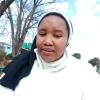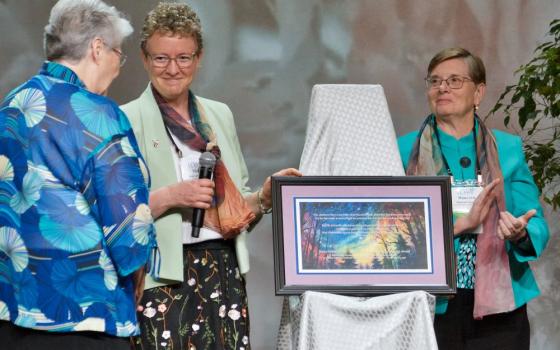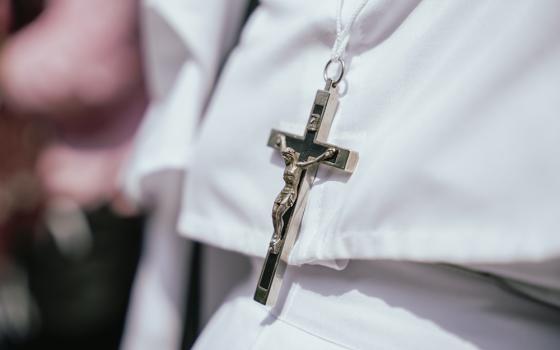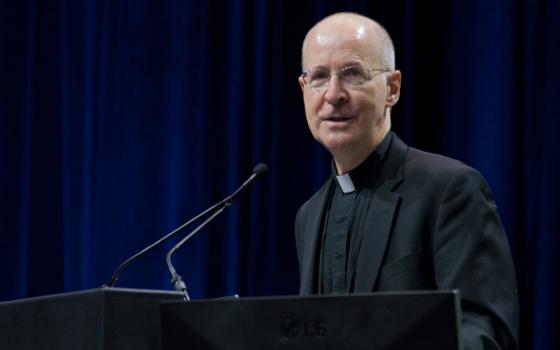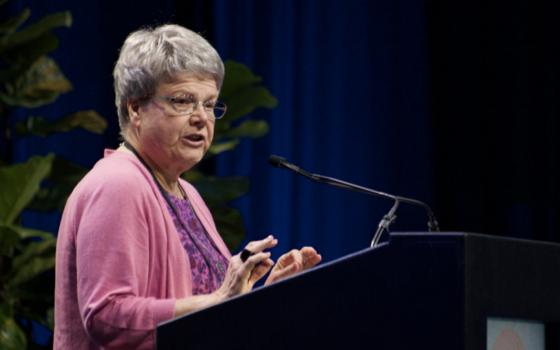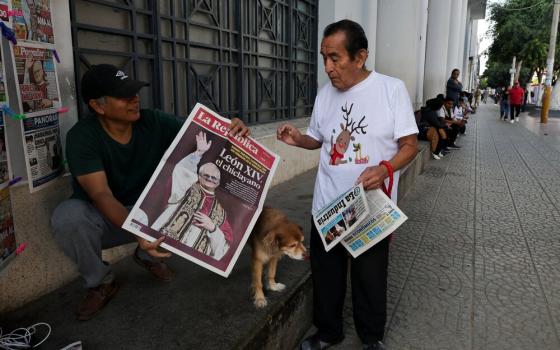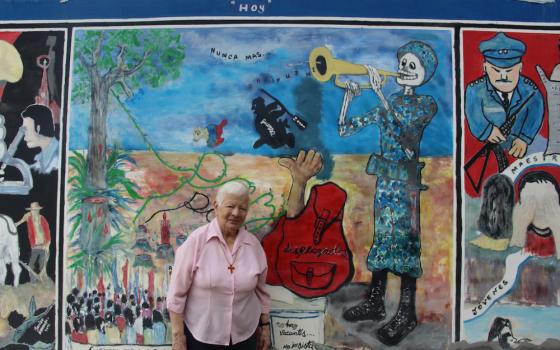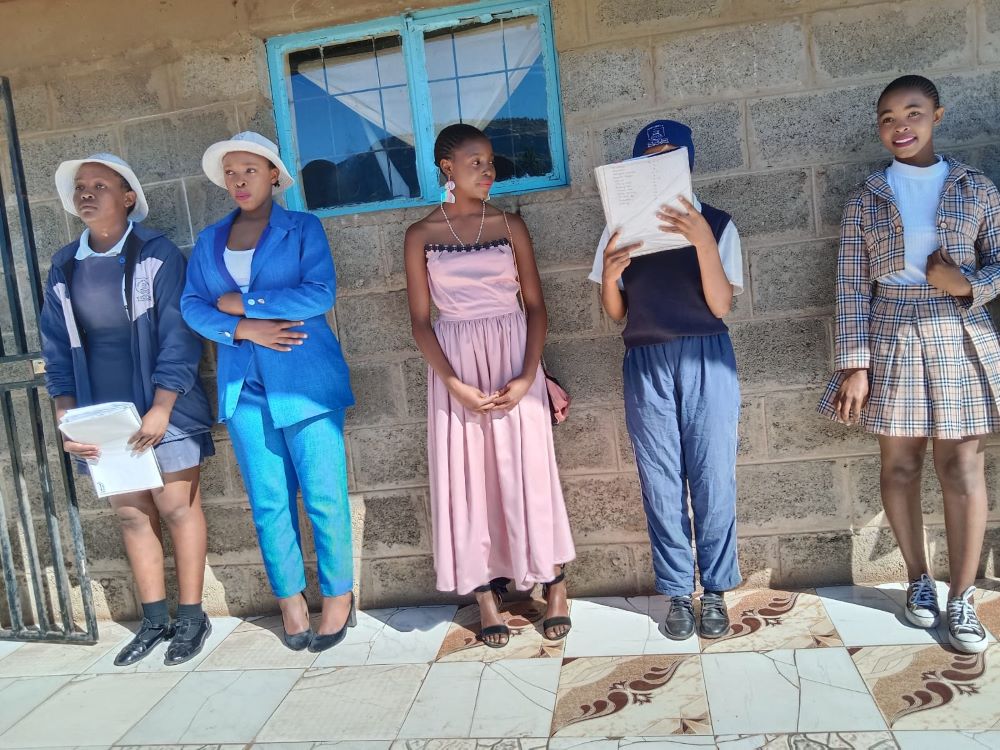
Maryland Vocational High School students present their work in fashion and textiles, exhibiting the clothes they made. (Lucia Matima.)
I am reflecting on how I have let God use, guard and guide me in my calling to religious life in the 21st century, focusing on my obedience. My response of yes to God is revealing to me every day how to live my life without doubts and regrets.
Religious life has changed my mindset in many ways. Growing up, I never dreamed of becoming an accountant or handling finances. I had been dreaming of becoming a pharmacist, a medical doctor or at least a nurse, and I still believe I belong to the health care industry. However, my congregation sent me to Maryland Vocational High School in Lesotho, South Africa, to assist as the bursar, and I love my work because it has opened my eyes to many things.
As the bursar, my responsibilities include maintaining the efficient functioning of the school accounts, monitoring all income and expenditure statements related to the school budget, and ensuring timely raising of students' fee payments including sundry expenses. Additionally, we have a boarding facility that sisters run; one of our novices, Sr. Anacletta Tsunyane, is responsible, supported by our community superior, Sr. Angelina Tlali. We often work together to teach our students how to sing the church hymns, prayers and liturgy of the church inspired by our mission as Sisters of the Holy Names of Jesus and Mary.
As our constitution states:
"… we desire to proclaim by our lives the primacy of the love of God. Moved by an active love, we collaborate in the Church's mission of education, with emphasis on education in faith, and with a special concern for the poor and disadvantaged."
Above and beyond, we also assist the boarding girls to fight for justice wherever they are and encourage them to be just themselves, too. We strive to help one another, even though we still try to reach out to those who are poor and disadvantaged. We see the risk of them being trafficked because they hardly accept themselves and where they come from. Therefore, we help them to be aware of themselves, accept where they come from and above all, to love themselves as God loves them as our constitution, once again, impels us:
"Education in the faith demands of us active involvement in the promotion of justice. In the spirit and according to the teachings of the church, our educational endeavours have a special concern for the poor and disadvantaged."
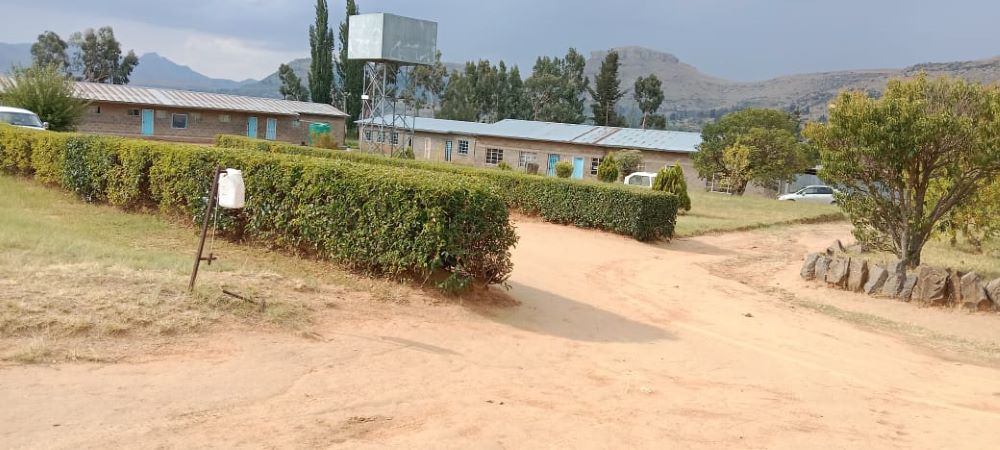
Sr. Lidya Lerato Rankoti serves as bursar at Maryland Vocational School in Lesotho, South Africa. (Lydia Lerato Rankoti)
As much as I love my work, I face some difficulties, including lack of training compared to other departments at the school, inadequate income and small number of students. The lack of training includes poor budgeting skills due to not attending workshops that could probably foster the knowledge I need for my work. I am not able to achieve some things I wish to do, even if I want to do things differently. I have some financial skills that I learned at Paki Health Center, but they don/t comply with the school's requirement, therefore, this affects my work badly.
Our income comes from school fees. Some parents/guardians fail to pay their child's school fees on time or fail to pay fees at all. The sad thing is, I know some parents/guardians have lost their jobs, others don't have jobs at all, while others have been affected by the climate change and cannot produce anything for themselves nor their child. Meanwhile, some students face the challenge of self-parenting due to divorces and breakups in their family unit or being raised by single parents.
In accordance with my work, I have to make sure that the students who haven't paid their bills go back home to collect their school fees, which is the saddest thing I've ever had to do. I know the feeling of being sent home to collect a school fee knowing there is no money at home. The situation has a profound, emotional impact on children, affecting them either mentally or psychologically. This can lead to unsatisfactory school performance, and some students drop out of school, never returning. These circumstances contribute to the low enrollment, as each year, 7% of students drop out.
Nevertheless, there is some assistance available for school fees. The government of Lesotho pays at least 70% fees for 40% of our students, Sentebale, a registered charity founded by Prince Harry of Sussex and Prince Seeiso of Lesotho, pays 100% fees for 1% of our students, and the Sisters of the Holy Names of Jesus and Mary pays 100% fees for 15% of our students. That leaves 20% who don't pay full fees. I am grateful we receive help from these organizations; although it is not enough for all our students, at least their needs are met halfway. We are aware of how much the economy has affected us, but we still try to provide healthy food for students, using whatever we receive for lunches. We are are painfully aware that some students come to school with empty stomachs, and as a religious, that really breaks my heart.
Advertisement
However, the Lord promises to take away our suffering. In some mysterious way, God places us in unbearable situations to teach us the importance of prayer and empathetic love. The more I grow, the more I deepen my emotional awareness, especially now, when the poor are in front of me. Without God and my community, it would be impossible to work with the poor. I need God and my community to console me but also to strengthen me so I can console them. I need to pray every day to be able to stand in front of the poor and to be with them. I need to have a good attitude like Blessed Marie-Rose and not fall into depression, anger, frustration or bitterness.
Despite the challenges of my work, I enjoy working with teenagers. They can ruminate and come up with good ideas, which makes work a lot easier. They are so amusing, zealous, full of optimism and fortitude, and have more free will than adults. They usually have the audacity to voice their views, do what they want to do and discover new things. However, they face so many trials; one of them thinks they know everything and they can get into things they don't know or comprehend. That's where I step in by doing research, reading the signs of the times and learning how to live religious life in this era. They challenge me to find healthier ways to help them and myself, too, as a young religious in the diversity of life.
The role of a religious woman in the future development of the church is uncertain, with no consensus around specific models. The Gospel's crucial call for justice prompts us to reconsider our lifestyles and search for new models of both corporate and individual response. We have a choice of hanging on or letting go. Thus, we must risk embracing our charisms in a way that compels us toward a creative future, and we do that by entering into the process of becoming good and wise risk-takers.
